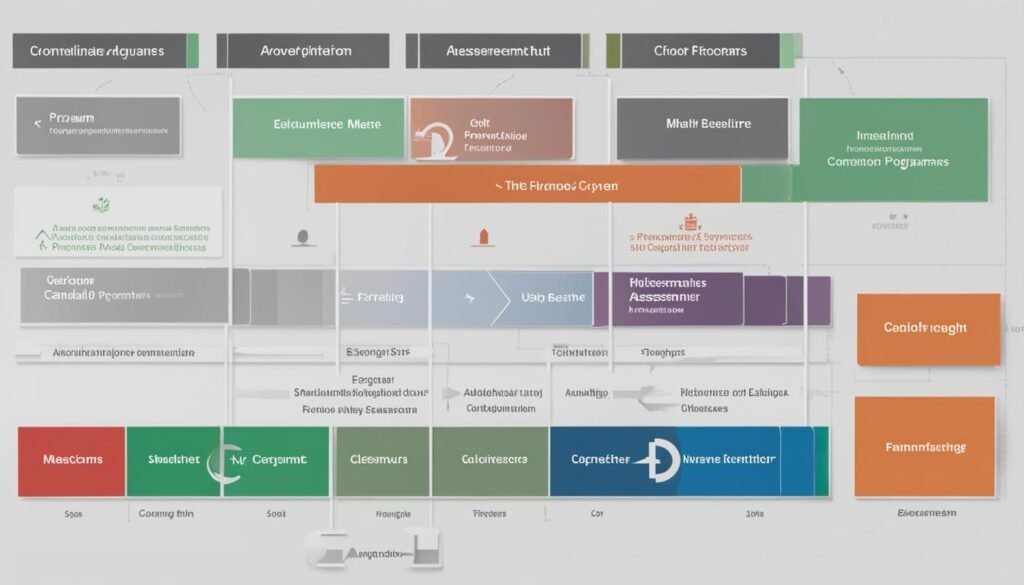What is a Thesis-Based vs. Course-Based Master’s Degree?
Generally, there are two paths that an international student can take in receiving their Masters Degree.
- One way is through a course-based program, and the other is through a thesis-based program.
- A course-based program is basically like your undergraduate degree: you take a certain amount of courses for a certain amount of credit, and once you pass those you receive your degree.
- A thesis-based program differs greatly from that.
- Thesis based degrees require you take fewer courses, and one or two substantially larger and more committed courses.
- In these courses, you perform your research and work on writing your thesis, which is typically based upon an original research topic of your choosing.
How Do You Choose?
Oftentimes, it can be difficult to choose between which types of masters program you wish to complete. Perhaps the most important factor in deciding which type of route to take is asking yourself what you wish to do after the completion of the program.
For example, if you wish to be a teacher or professor or have some sort of job that revolves around research, perhaps a thesis-based route would be best for you. On the other hand, a course-based program is usually completed faster and can sometimes give you a head start in the particular industry you wish to specialize in.
- MS in Data Science in the USA
- STEM courses in the USA
- US Entrance Exam All Basic Details
- How to get an Internship in the USA?
- Know Highest Paying Jobs in the USA
The thesis-based path provides a number of pros and cons.
- First off, it is considered the more ‘traditional’ path. Oftentimes, this is the path to a master’s degree offered more commonly than the course-based.
- Completing a thesis-based program also can set you, an international student , up better to participate in a doctorate program upon completion of the masters program.
- Also, the scope of the research you will perform in a thesis-based program is smaller than the research you would perform in a doctorate program.
- Oftentimes, one of the biggest cons to a thesis-based program is the time it takes to complete.
- This path typically takes significantly longer than the course-based option.
- Also, another potential setback to thesis-based courses is that it could limit your future to research like positions and does not set one up as well for business or management decisions.
- We strongly suggest that you perform some of your own research to see if the thesis-based route is the one for you.
One of the biggest pros of the course-based route is that it typically is completed much quicker than the alternative.
- This works out nicely if you are trying to get your degree in a hurry or if you want to try and receive two degrees, for example.
- Also, course-based usually works out better when you do not intend to follow it up with another degree at the doctorate level.
- Another typically big pro about course-based work is that it tends to not narrow your prospective employment like how thesis-based can sometimes narrow employment to research based positions.
- There are, however, some cons as well with course-based work.
- One of them is that if you complete a course-based program and later decide that you would like to complete a degree at the doctorate level, you may have to complete and/or perform some work to show that you are ready to complete a degree at the level and so you can show your abilities to perform at that level.
- Another setback to this path is that all the learning is done in the classroom, so it leaves out the practical learning aspect.
- It also does not bolster your research skills as well as the thesis-based approach, and also does not prepare as well for technical specialization.
Choosing what program works best for you can oftentimes prove difficult. In addition, it can be even harder to international student loan options once you decide on a program. If you have any questions about scholarships or other options for finding funding to study in the U.S. please visit us at www.nomadcredit.com . We’d be happy to help you search and compare options for education loans or study loans , too. Please send us an email at [email protected] if you have any questions! We are happy to help.

How to Choose Between Course-Based and Thesis-Based Master’s Programs in Canada
- January 13, 2024
- Office of Outreach and Relationships

Pursuing a Master’s degree in Canada while working full-time can be a challenging yet rewarding endeavor. One of the important decisions you need to make is whether to choose a course-based or thesis-based program. Both options have their pros and cons, and it’s essential to consider factors such as your career goals, research interests, and time commitments. In this article, we will explore the differences between course-based and thesis-based master’s programs in Canada to help you make an informed decision.
Key Takeaways
- Course-based master’s programs provide a comprehensive understanding of a field through coursework and offer flexibility for individuals with full-time jobs.
- Thesis-based master’s programs emphasize research and independent study, providing academic rigor and the opportunity to contribute to the existing knowledge in a field.
- Consider your career goals and research interests to choose a program that aligns with your long-term aspirations and passion for the subject matter.
- Evaluate the time commitments required for each program and assess your ability to balance work responsibilities and academic commitments.
- Explore program requirements, assessments, and networking opportunities to ensure a good fit with your strengths, preferences, and future prospects.
Please note that when implementing this HTML text into your webpage, make sure to remove the capitalized HTML tags.
Understanding Course-Based Master’s Programs
Course-based master’s programs in Canada are a popular choice for individuals looking to deepen their knowledge in a specific field through coursework. These programs require students to complete a set number of courses, providing them with a comprehensive understanding of their chosen area of study.
One of the advantages of course-based programs is the flexibility they offer. Students have the freedom to complete their coursework at their own pace, making it a suitable option for those with full-time jobs. This flexibility allows you to balance your professional commitments while pursuing your master’s degree.
In course-based programs, you’ll have the opportunity to choose from a variety of electives, allowing you to tailor your education to your specific interests and goals. Some programs even offer specializations or concentration areas, enabling you to focus on specific aspects of your field of study. This specialization can enhance your expertise and make you a highly sought-after professional in your industry.
Completing coursework in a course-based program provides a practical and hands-on approach to learning. Through assignments, projects, and examinations, you’ll gain valuable skills and knowledge that can be directly applied to real-world situations. This practical focus can significantly contribute to your professional development, preparing you for leadership roles and career advancement opportunities.
The image below highlights the diverse coursework and flexibility offered in course-based master’s programs:
Whether you’re looking to enhance your skills, change career paths, or gain a deeper understanding of your field, a course-based master’s program can provide you with the necessary knowledge and flexibility to achieve your academic and professional goals. Take advantage of the specialized coursework, customizable options, and practical learning opportunities offered in course-based programs to set yourself up for success.
Exploring Thesis-Based Master’s Programs

Thesis-based master’s programs in Canada offer a unique opportunity to delve deep into research and independent study. These programs are designed to foster academic rigor and intellectual growth by requiring students to conduct original research and write a thesis. With the guidance of a faculty advisor, students embark on a journey of exploration and contribute to the existing body of knowledge in their chosen field.
Throughout the thesis-based program, students work closely with a thesis committee, consisting of experts in the field who provide valuable guidance and feedback. This collaborative approach ensures that students receive the necessary support and mentorship to refine their research questions, design methodologies, and analyze data.
The research aspect of thesis-based programs offers numerous benefits, including the opportunity to develop critical thinking and problem-solving skills. By conducting original research, students build a strong foundation in their area of study and gain a deep understanding of the research process.
Additionally, thesis-based programs provide a platform for students to contribute to the academic community through publications, presentations, and conferences. These experiences not only enhance their knowledge but also help establish their credibility and professional reputation within their field of interest.
However, it is important to note that thesis-based programs often require a significant time commitment. The extensive research and writing involved can be challenging for those with full-time jobs. It is crucial for prospective students to carefully evaluate their time management skills and determine if they have the capacity to balance work, studies, and personal commitments.
Despite the time commitment, thesis-based master’s programs offer a unique and rewarding academic experience. The opportunity to engage in in-depth research, collaborate with renowned experts, and contribute to the academic landscape can be immensely fulfilling for individuals passionate about their field of study.
Whether you choose a thesis-based program or a course-based program, it is important to carefully consider your academic goals, research interests, and personal commitments. By understanding the distinctive features of thesis-based programs, you can make an informed decision that aligns with your aspirations and sets you on a path of academic excellence.
Considering Career Goals and Research Interests

When deciding between course-based and thesis-based master’s programs in Canada, it’s crucial to consider your career goals and research interests.
Course-based programs are often more suitable for individuals seeking to gain specialized knowledge and skills in a particular area to enhance their professional development. These programs offer a structured curriculum with a wide range of courses to choose from, allowing you to tailor your studies to align with your career goals. By completing coursework in your desired field, you can acquire the practical skills and knowledge necessary to excel in your chosen profession. Additionally, course-based programs often provide opportunities for internships, co-op placements, and industry collaborations, further enhancing your career prospects.
On the other hand, thesis-based programs are ideal for those interested in pursuing research-oriented careers or further studies at the doctoral level. These programs offer the chance to delve deep into a specific research area and make original contributions to the field. By working closely with faculty advisors and engaging in independent research, you can develop critical thinking, analytical, and problem-solving skills that are highly valued in research-based professions. Thesis-based programs also provide opportunities to present your research at conferences and publish your findings, further establishing your expertise and credibility within the academic community.
It’s important to align your program choice with your long-term goals and passion for the subject matter. Consider where you see yourself in the future and how each program can help you reach those aspirations. Reflect on your research interests and whether you are more inclined towards practical application or scholarly inquiry. By choosing a program that aligns with your career goals and research interests, you can ensure a rewarding and fulfilling academic journey.
Assessing Time Commitments

Pursuing a Master’s degree in Canada while working a full-time job requires careful consideration of time commitments. When deciding between course-based and thesis-based programs, program duration is an important factor to consider. Course-based programs typically have a shorter duration compared to thesis-based programs since they primarily focus on coursework. This shorter duration can be beneficial for individuals juggling work and studies.
On the other hand, thesis-based programs require a more significant investment of time and effort due to the research and thesis writing components. Conducting original research and writing a thesis involves a substantial time commitment, which may be challenging for those with full-time jobs. Students in thesis-based programs must allocate sufficient time for data collection, analysis, and writing, along with engaging with their thesis committee.
Before making your program choice, it’s crucial to assess your ability to balance your work responsibilities and academic commitments. Reflect on your current workload, your work-life balance goals, and your capacity to dedicate the necessary time and effort to your program of choice. Consider whether a shorter duration with a focus on coursework or an extended commitment to research aligns better with your personal and professional goals.
Exploring Program Requirements and Assessments

When deciding between course-based and thesis-based master’s programs in Canada , it’s important to understand the program requirements and assessments involved. Course-based programs typically require you to complete a specified number of courses, assignments, and examinations. This structure allows you to gain a broad understanding of the field through coursework and demonstrates your ability to apply knowledge effectively.
In contrast, thesis-based programs focus on independent research, where you’ll delve deeper into a specific area of interest and contribute to the field’s existing body of knowledge. In these programs, you’ll undertake original research, write a thesis, and often defend your work through an oral examination. This research-centric approach fosters critical thinking, problem-solving, and analytical skills.
The image below illustrates the different requirements and assessments in course-based and thesis-based master’s programs:
As you consider your strengths and preferences, think about how coursework, research, and examinations align with your learning style and career goals. If you enjoy a structured learning environment and prefer applying theory to practical situations, a course-based program may be the right fit. On the other hand, if you’re passionate about research and want to contribute new knowledge to your field, a thesis-based program could provide the academic rigor and opportunities you seek.
Regardless of the program type, it’s crucial to carefully review the program requirements, such as the number of courses or the thesis length, and ensure they align with your time availability and commitments. Additionally, consider the type of assessment that resonates with your learning style and allows you to demonstrate your knowledge effectively.
Networking and Collaborative Opportunities
Both course-based and thesis-based master’s programs in Canada offer a wealth of networking and collaborative opportunities that can significantly enhance your academic and professional journey. These opportunities allow you to connect with like-minded individuals, forge valuable professional connections, and contribute to the academic community in meaningful ways.
In course-based programs, you’ll have the chance to interact with your peers and esteemed faculty members through engaging group projects, lively discussions, and thought-provoking seminars. These collaborative experiences foster a supportive and dynamic learning environment, where you can exchange ideas, gain diverse perspectives, and build lasting professional relationships within your field.
Networking for Professional Connections
Networking in course-based programs opens doors to a wide range of professional connections. By actively engaging with your classmates and professors, you gain access to a network of professionals who share your passion and can offer valuable insights and opportunities. From informal conversations during breaks to formal networking events, you have numerous chances to connect with individuals who can become valuable mentors, collaborators, or future employers.
These professional connections can be particularly advantageous for those pursuing career-centric goals. Networking provides access to industry-specific information, job opportunities, and career advice that can accelerate your professional growth and help you stay updated with the latest trends and developments.
Collaborative Opportunities in Thesis-Based Programs
In thesis-based programs, you’ll have the unique opportunity to collaborate with renowned researchers within your field of study. Working alongside experts in their respective domains, you can contribute to cutting-edge research projects, expand your knowledge base, and make meaningful contributions to your academic discipline.
Thesis-based programs often provide opportunities to attend conferences, present your research findings, and publish your work in academic journals, further increasing your visibility within the academic community. These experiences allow you to connect with peers and experts from around the world, expanding your professional network and fostering collaborations that can have a lasting impact on your academic and research career.
By actively participating in networking and collaborative opportunities, you not only enhance your knowledge and skills but also pave the way for future collaborations and career advancements. Whether you choose a course-based or thesis-based program, make sure to consider the type of connections and collaborative experiences that align with your career goals, ultimately enriching your academic journey.
Funding and Scholarships
When pursuing a Master’s degree in Canada while working full-time, funding and scholarships are crucial in ensuring you have the financial support you need. While research funding opportunities are more commonly available in thesis-based programs, it’s important to note that course-based programs may also offer scholarships and assistantship positions.
Exploring the funding options available for both program types is essential in making an informed decision. Research the scholarships offered by universities, external organizations, and government agencies. These scholarships can provide the financial support you need to pursue your degree without placing excessive strain on your full-time job.
In addition to scholarships, assistantship positions are worth considering. These positions often come with a stipend or tuition remission and can help alleviate the financial burden of pursuing a Master’s degree. Talk to program coordinators or faculty advisors to learn more about assistantship opportunities and how they can provide you with the necessary financial support.
Remember, funding and scholarships can significantly impact your ability to pursue a Master’s degree in Canada while working full-time. Take the time to explore and consider all available options, ensuring that you make a well-informed decision that aligns with your financial situation and supports your academic and career goals.
Considering Future Prospects and Employability
When choosing between course-based and thesis-based master’s programs in Canada , you must carefully consider the future prospects and employability each option offers. Course-based programs focus on developing practical skills and knowledge directly applicable to the job market. The emphasis on practicality enhances your immediate employability and opens doors for career advancement opportunities.
On the other hand, thesis-based programs provide you with valuable research experience and the opportunity to contribute to the academic community. This research-oriented approach can be highly beneficial if you’re considering a career in research or planning to pursue further academic studies, such as a Ph.D.
When making your decision, think about your long-term career goals and the skills and experiences that will best support your desired path. Consider the immediate employability boost that course-based programs offer, as well as the long-term benefits of research opportunities and contributions to the academic field provided by thesis-based programs.
Seeking Guidance and Making an Informed Decision
Making an informed decision between course-based and thesis-based master’s programs in Canada requires guidance from faculty advisors and program coordinators. These experts possess valuable insights into the structure, requirements, and outcomes of each program.
To make an informed decision, engage in conversations with professors and professionals in your field of interest. Attend program information sessions to gather comprehensive information and ask questions to clarify any doubts or concerns.
The guidance provided by faculty advisors and program coordinators will help you obtain a thorough understanding of the available options and make a decision that aligns with your career aspirations, research interests, and work-life balance.
Remember, seeking guidance allows you to make an informed decision that sets you on the path towards a successful and fulfilling academic journey.
Pursuing a Master’s degree in Canada with a full-time job requires careful consideration of various factors. When choosing between course-based and thesis-based programs, it is essential to assess your career goals, research interests, time commitments, program requirements, and future prospects.
By evaluating these considerations and seeking guidance from faculty advisors and program coordinators, you can make an informed decision that aligns with your aspirations and work-life balance. Remember to prioritize your long-term goals and passion for the subject matter to ensure a fulfilling and successful academic journey.
Ultimately, whether you choose a course-based or thesis-based program, both options offer unique benefits and challenges. The key is to choose a program that suits your individual goals and circumstances. With the right decision-making process and careful consideration, you can pursue your Master’s degree in Canada while balancing your full-time job and unlocking new opportunities for professional growth and personal fulfillment.
Source Links
- https://www.macworld.com/article/670477/best-mac-or-macbook-for-students.html
Related Posts

Is a 3.5 Masters GPA bad?
Explore the implications of a 3.5 GPA in your Masters and why it may actually reflect strong academic performance.

Can I do Masters with 2.7 GPA?
Explore your options for pursuing a Masters with a 2.7 GPA – find programs that fit your profile and enhance your academic journey.

Kaitlyn Irving
Making the right choice for me: course-based or thesis-based.
- February 19, 2019
- , Education
When I was applying for graduate school, choosing the course-based option for my studies was a no brainer.
I knew that I wanted to work full-time while I was completing the Master’s program – and since I was going to be learning at a distance, the thought of formulating a thesis seemed daunting. Most students who choose a thesis-based Master’s program go into graduate school prepared with an idea of what they want to explore for their thesis. I, on the other hand, could not seem to think of a new ground breaking idea – one that had not been researched before.
And so I began my course-based Master’s program, which fit perfectly with my schedule.
I was able to work full-time during the day and attend my online classes at night. I completed my readings and assignments on the weekends, and was minimally stressed. As I became more engrossed in the topics we were exploring, I too was able to identify gaps in research and felt curious. I was starting to ask more questions and took on additional research outside of the classroom. One of my professors encouraged my curiosities by pushing me to pursue independent research for publication.
Before I knew it, I was taking on the work of a thesis without actually being in a thesis program – the very thing I didn’t think was possible at the time of my admission application. I was initially hesitant to do this, but it turns out that it did not require extra work (the research), to the amount that I was afraid of. It was navigating the unknown world of publication that was the most difficult.
I began to question whether academic journals would take an independent researcher seriously. And I felt like my voice wasn’t valid in the scientific community. Thankfully, my professor helped me to realize that what I had to say was a conversation worth having, regarding an emerging public health issue. She also offered to be my co-author, so I was not alone.
The pursuit towards publication took several months, thousands of hours, and many sleepless nights. At times I thought that the journey would never end but I believed in my research and knew it was important.
I am pleased to say that my research was accepted for publication in an peer reviewed journal and it is scheduled to be published spring of this year (2019).
Ultimately, no matter the path you choose for your graduate school journey, you are not restricted to only course-based learning or writing a thesis.
You truly can do whatever you want to do if you are willing to put in the work.
What is important is choosing a school that will encourage you to reach for the stars and support you if you want to go above and beyond the prescribed schedule.
About the author
Similar posts you might also like.

The PH SPOT Essential Guide: A step-by-step manual for finding, applying to, and thriving in research and teaching assistant roles during graduate school

MPH degree starter guide – The PH SPOT essential guide to deciding whether an MPH is right for you and choosing the right program & school that best fits your needs

PhD in Public Health – Tips for applying to a public health PhD program
Share your story.
Are you a passionate and dedicated individual with a vision for helping advance public health professionals and their careers around the world? Do you want to share real advice and personal stories on our blog?

Founded in 2017, PH SPOT is a career development platform for public health professionals around the world.
Get Started
- Public Health Podcast
- Public Health Blog
- Job Opportunities
- How we got started
Premium Resources
- Infographics 101 Course
- The Public Health Career Club
Free Downloads
- MPH Programs in Canada
- MPH Programs in USA
- MPH & MSc Programs Online
- DrPH Program list
- Personal Statement Guide
- Job Interview Questions
- Improve career in PH
SET PUBLIC HEALTH CAREER GOALS
A simple template to get you started..
We will also add you to our Public Health community so that you can receive more awesome stuff from us. If you’re not enjoying them, you can unsubscribe instantly.
Webinar Invitation: Explore the UK and other Study Destinations
Course-based Vs Research-based Master’s Programs || Which Is Best For You?
Ebere Nsofor
- Share on Facebook
Table of Content
If getting a master’s degree is in your academic or career plans, then you need to fully understand what it entails. Getting a master’s degree is a great way to advance your career or kick-start a new career. However, there are different types of master’s degrees offered by universities. This article will discuss course-based and research-based masters to help you understand what they mean and how they are different.
Course-based programs
Course-based master’s degree programs are designed for students who want to learn new skills, gain knowledge, and advance their careers. These structured programs offer students a set of courses to complete for their degree. The courses are designed to provide students with the necessary skills and knowledge to succeed in their chosen careers.
Research-based programs
Research-based master’s degree programs are designed for students who want to conduct research, develop new knowledge, and contribute to their field. These programs are research-intensive and require students to conduct original research and write a thesis or dissertation. The research conducted should contribute to the knowledge base of the field.
Top Frequently Asked Questions on Study Abroad For International Students
Differences between Course-Based and Research-Based Master’s Degree Programs
Though both programs have their unique advantages, they are tailored to different career goals and learning styles. Here are four major differences between course-based programs and research-based degree programs:
- Approach to learning
The main difference between course-based and research-based master’s degree programs is the approach to learning. As earlier stated, course-based programs offer students a set of courses to complete for their degree. These programs are often referred to as taught master’s programs and are structured around a predetermined curriculum.
On the other hand, research-based programs are not structured, and students have to conduct their research independently. This program requires students to be self-motivated, independent, and have excellent research skills.

2. Duration
Another difference between course-based and research-based master’s degree programs is the length of time it takes to complete the program. Course-based programs typically take one to two years to complete, while research-based programs usually take two to three years to complete due to the time required for extensive research. Course-based programs are an excellent choice for people looking to advance their careers quickly.
5 Study Abroad Application Mistakes And How To Avoid Them
3. Purpose
Course-based master’s degree programs are designed to equip students with practical skills and knowledge directly applicable to their chosen profession. Students can choose from a variety of courses and tailor their programs to meet their interests and career goals.
Research-based programs, however, are research-intensive and require students to conduct original research and write a thesis or dissertation. Students have the freedom to choose their research topic and conduct their research independently. Research-based master’s degrees are best for students interested in pursuing academic careers or roles that require advanced research skills.
4. Curriculum and Assessment
While course-based programs may include a small research project, the emphasis is primarily on coursework. The majority of your time in a course-based program is spent attending lectures, seminars, and workshops. Assessment is primarily through exams, coursework, and projects.
Research-based or thesis-based programs are centred on independent research and academic exploration. The core of the program is the research thesis. The thesis serves as the culmination of the program, showcasing a student’s ability to conduct independent research, analyze data, and present findings coherently.
Now that you have an idea of the key differences between both master’s programs, you need to consider your learning style and career goals before choosing one that is right for you. If you’re looking to gain practical skills and enter a specific industry, then a course-based program will be a better choice, however, if your goal is to pursue a PhD, then, a more appropriate choice would be a research-based master’s.
Preparing to study abroad can be overwhelming, if you need further guidance on degree options, application requirements and schools to apply to for your degree or counselling regarding the best master’s degree program for you, please click here to chat with our counsellors.
You May Also Like: Choosing A University To Study Abroad || 5 Key Things To Consider
Get career and educational articles and insights from our weekly newsletter.
Thank you for subscribing.
Something went wrong.
We respect your privacy and take protecting it seriously

Recommended Reading

- Guest Article , Resources

UK Global Talent Visa || All You Need To Know

Top 10 UK Scholarships For International Students
Gre and gmat || which is best for you, the best of degrees & careers delivered to your inbox.

Study Arears
- Career Beam
Degrees & Careers is a community of counsellors that provides expert careers and education advice.
Get News, Scholarships, And more
Connecting you with top Canadian universities Joignez des universités canadiennes d’excellence
Canadian Master’s and PhD programs
At our universities you will find the following programs if you are interested on a master’s, this could help you decide which one is a better fit for you: some tips that could also help you:.
- Think about what you hope to do after the program, usually students contemplating a PhD or an academic career are better served with a thesis based program.
- The thesis-based program offers better preparation for a PhD program .
- The course-based program will offer you more time to pursue other learning opportunities, like an internship , for example, or other networking opportunities.
- At CALDO universities you will find more options of thesis-based masters Admission. For a thesis-based Master’s you will need a supervisor which may make the admission process a bit more complex. On the other hand, some course-based Master’s will require evidence of professional experience (e.g. MBA).
For more information on how to apply see the Steps to Apply section.
Latest News

Opening opportunities in Argentina
Posted on: Apr 10, 2024
CALDO and its members connected with representatives of the best universities in the country, including the University of ...

Creating bonds for education in Paraguay
To reinforce our agreement with the Don Carlos Antonio López Scholarships BECAL, we met with the Director of Training for ...


COLFUTURO Y CALDO FIRMAN CONVENIO
Posted on: Jan 29, 2024
Nos complace anunciar la firma del convenio entre COLFUTURO y el Consorcio CALDO. Esta alianza abre las puertas a increíbles ...

BECAS ANII – URUGUAY
Posted on: Jan 18, 2024
Si eres Uruguay@ y estás interesad@ en hacer tu Maestría o Doctorado en Canadá, te informamos que ANII tiene una Convocatoria ...

Oportunidad para estudiantes de doctorado
Posted on: Nov 24, 2023
Si eres un estudiante de doctorado o conoces a alguien que lo sea, University of Toronto y McMaster University tienen una ...

BECAS SENACYT
Posted on: Nov 21, 2023
Si eres de Panamá y estás buscando una beca para estudiar tu posgrado en el exterior, te recomendamos que tengas todos tus ...

BECA DE DOCTORADO – UNIVERSITÉ LAVAL
Posted on: Nov 2, 2023
Si estás interesado en hacer un doctorado en Ciencias Farmacéuticas, encuentra aquí más información sobre la beca de ...

¡CALDO y sus universidades visitan Latinoamérica!
Posted on: Sep 3, 2023
Si vives en COLOMBIA ¡Aprovecha esta OPORTUNIDAD para impulsar tu futuro académico en Canadá! ¿Qué puedes esperar de este ...

Resultado de becas Colfuturo: Colombianos que dejan huella
Posted on: May 9, 2023
¡Buenas noticias! Se publicaron los resultados de la convocatoria de COLFUTURO: Programa Crédito Beca 2023 y las ...

Request a Contact
To request support from CALDO, please provide the information below.
- FLORIDA STATE UNIVERSITY
Thesis, Project and Course-based MS Degrees
The number of hours for the graduate degree as described in this web page will be effective in Summer 2018. In the CS and CNSA MS degree programs (but not CC), a student must select one of the three options of thesis, project, or course-based to complete the degree. Each option has a specific number of required courses as well as other requirements, as described below.
Thesis Option
A student under the thesis option must take seven (7) courses (21 semester hours) at or above the 5000 level, plus at least nine (9) hours of CIS 5970r, Thesis. At most nine (9) hours of CIS 5970r can be counted toward the required 30 hours for the MS degree. The seven courses must include at least one course from each area as described above. Approved offerings of CIS 5930/6930 Special Topics are counted towards the 7 courses, but supervised teaching, supervised research, seminars, DIS and CIS 5915 (project hours) cannot be included. The thesis is defended by registering for CIS 8976 Master’s Thesis Defense (0).
The student in the thesis option is required to propose and create an individual thesis topic of appropriate focus, size and complexity and to write a document discussing it. The thesis proposal must be approved by the supervisory committee. The thesis is to be written in accordance with the University standards. Upon completion, a thesis must be successfully defended to the department in an open forum, and be unanimously approved by the major professor and supervisory committee. An electronic version of the thesis must be submitted to the university as well as the CS webmaster, and CS graduate coordinator.
Project Option
A student under the project option must take eight (8) courses (24 semester hours) at or above the 5000 level, plus at least six (6) hours of CIS 5915r Graduate Software Project. At most six (6) hours of CIS 5915 can be counted toward the required 30 hours for the MS degree. The eight courses must include at least one from each of the areas described above. Approved offerings of CIS 5930/6930 Special Topics are counted towards the 8 courses, but supervised teaching, supervised research, seminars, DIS, and CIS 5970 (thesis hours) cannot be included. The student must also register for CIS 8974(0) to defend the project.
The student in the project option is required to propose and create an individual project of appropriate focus, size, and complexity and to write a document discussing it. The project proposal must be approved by the major professor and supervisory committee. The project document should be written with direction from the major professor and supervisory committee and in accordance with the description given at Master’s Project . Upon completion, both the project and the document must be successfully defended to the department in an open forum with unanimous approval from the major professor and supervisory committee. An electronic version of the project must be submitted to the CS webmaster, and CS graduate coordinator.
Course-based Option
A student under the course-based option must take ten (10) courses (30 semester hours) at or above the 5000 level, including at least one course from each of the three core areas described above. Approved CIS 5930/6930 Special Topics are counted towards the 10 courses, but supervised teaching, supervised research, seminars, DIS, CIS 5970 and CIS 5915 cannot be included. A student must earn a grade of B+ or higher for at least 6 of the 10 courses in order to graduate in the course-based option. The student must also register for CIS 8966, Master’s Comprehensive Exam (0) the semester of graduation (effective Spring 2005).
Supervisory Committee
For the thesis and project options, it is the student’s responsibility to form a supervisory committee regardless of his or her selected major. No later than the start of work on the thesis or project, the student will secure the consent of an eligible computer science faculty member to serve as the major professor. In consultation with the major professor, the student will secure the consent of at least two additional graduate faculty members to serve as the supervisory committee, chaired by the major professor.

Home » Missouri University Of Science And Technology » What Is The Difference Between Thesis Based And Course Based?
What Is The Difference Between Thesis Based And Course Based?
Table of Contents
The academic, thesis based Master’s differs from the professional degree in that it emphasizes original research and research methodology . Professional, course-based Master’s degrees are more structured and focus on the direct application of knowledge in teaching and educational administration contexts.
What is better thesis or coursework?
A thesis master’s degree is more research intensive . Students who aim to work on a thesis can expect to do more reading and writing as they specialize their knowledge. The coursework is generally centered around preparation for a final thesis, building their skills in research, data collection, analysis, and writing.
What is a course-based degree?
In a course-based program, all degree requirements are fulfilled by completing courses . It may also include a project, such as a major research paper or group project. Read this guide for helpful tips on working with a supervisor, preparing for a practicum and writing at the graduate level.
What is thesis based course in Canada?
Thesis-based master’s programs at UAlberta train students to conduct methodical, systematic, theory-based, and collaborative research with a diversity of outstanding people, in a multitude of leading facilities and stimulating environments .
What is the meaning of course-based Masters?
Course-based master’s degrees are based on structured course modules taught through lectures, seminars, laboratory work or distance learning , while research-based master’s degrees require the student to carry out their own research project(s) in a specialized field of study.
Can you get a PhD with a non-thesis Masters?
So the answer is yes, but it depends on the university . Show activity on this post. Applying for a PhD program depends on your curriculum vitae and the research work you have done during the years before your PhD.
Do all Masters require a thesis?
Yes. Master’s programs focused more on application than research typically don’t require a thesis – although they may still give students the option. Examples of common non-thesis master’s programs include nursing, business, and education.
What is thesis based?
What is research-based course.
Course-based Masters Degrees are based on course modules taught through lectures, lab work, seminars or distance learning, while research-based Masters Degrees requires student to carry out their own research project in a specialized field of study .
What is the difference between coursework and research masters?
Course-based Masters Degrees are taught through lectures, lab work, workshops, or distance learning, while research-based Masters Degrees enable students to conduct their research projects in a specialized area. Research-based postgraduate programs usually take longer to complete than course-based programs.
Is thesis based Masters funded in Canada?
Most thesis-based graduate programs provide funding for students in the first two years of a Master’s degree and the first four of a PhD . More information is available from the program.
Is a non thesis masters worth it?
Students whose main reason to pursue a Master’s degree is advancement within a current job or movement from one professional position to a new workforce position would do well to consider a non‐thesis option, as it may well provide a more flexible schedule and shorter path to completion. If you want to pursue a Ph.
Can I do PhD after course based Masters in Canada?
The requirements to study in Canada at doctorate level vary between universities and courses, but you generally need the following: A master’s degree in a related field, with strong grades and proven research ability and potential .
What are the 4 types of degrees?
College degrees generally fall into four categories: associate, bachelor’s, master’s, and doctoral . Each college degree level varies in length, requirements, and outcomes. Each college degree aligns with students’ different personal interests and professional goals.
What is Master without thesis?
Also known as Taught, Professional, or Course-work Masters , this type of master’s degree involves classroom-based studies for a pre-defined set of core subjects every semester. Each core subject (and elective) ends in an exam.
Is a dissertation a thesis?
Dissertation vs. As mentioned earlier, a thesis is presented at the culmination of a master’s program, whereas, as dissertation is presented to earn a PhD . A thesis is a compilation of research ensuring that the researcher is well informed and has knowledge about the research topic learnt in the study program.
How many years is a PhD after a Masters?
Time commitment-Many American PhD programs do not offer significant coursework reduction for students who already have Master’s degrees. This means that they will have to do a five to seven year PhD on top of their one to three year Master’s.
What’s the difference between a PhD and a doctorate?
Bottom line: As the PhD is more academic, research-focused, and heavy on theory, an applied doctorate degree is intended for you to master a subject in both theory and practice .
How many years is a PhD?
four to six years On average, a Ph. D. may take up to eight years to complete. A doctorate degree typically takes four to six years to complete—however, this timing depends on the program design, the subject area you’re studying, and the institution offering the program.
Is writing a thesis hard?
Writing a thesis or a dissertation can be a challenging process for many graduate students . There are so many chapters to complete, and writing each individual chapter requires an immense amount of hard work and a strong motivation.
What degree requires a thesis?
The primary difference between a dissertation vs thesis is the degree programs that require these projects. Students in a master’s degree program will write a thesis, whereas students in a doctoral degree program will complete a dissertation.

By Antonia Leonard
Antonia Leonard is an education expert who has dedicated her life to helping students achieve their academic goals. She has worked in schools all over the world, and has developed groundbreaking curricula that have helped countless students excel.
Antonia is a firm believer in the power of education, and she is passionate about helping students reach their full potential. She is also a strong advocate for equal opportunity, and she works tirelessly to ensure that all students have access to quality education regardless of their socioeconomic status or race.
Antonia is a gifted educator, and she is widely respected within the education community. She has received numerous awards and accolades for her work, including being named one of the "Top 10 Educators to Watch" by Education Week magazine.
You might also like:
How is i20 amount calculated, is a mst a masters, what is the difference between an ma and an mst.

File(s) under embargo
until file(s) become available
ENHANCING PRIVACY OF TRAINING DATA OF DEEP NEURAL NETWORKS ON EDGE USING TRUSTED EXECUTION ENVIRONMENTS
Deep Neural Networks (DNNs) are deployed in many applications and protecting the privacy of training data has become a major concern. Membership Inference Attacks (MIAs) occur when an unauthorized person is able to determine whether a piece of data is used in training the DNNs. This paper investigates using Trusted Execution Environments (TEEs) in modern processors to protect the privacy of training data. Running DNNs on TEE, however, encounters many challenges, including limited computing and storage resources as well as a lack of development frameworks. This paper proposes a new method to partition pre-trained DNNs so that parts of the DNNs can fit into TEE to protect data privacy. The existing software infrastructure for running DNNs on TEE requires a significant amount of human effort using C programs. However, most existing DNNs are implemented using Python. This paper presents a framework that can automate most parts of the process of porting Python-based DNNs to TEE. The proposed method is deployed in Arm TrustZone-A on Raspberry Pi 3B+ with OPTEE-OS and evaluated on popular image classification models - AlexNet, ResNet, and VGG. Experimental results show that our method can reduce the accuracy of gradient-based MIAs on AlexNet, VGG- 16, and ResNet-20 evaluated on the CIFAR-100 dataset by 17.9%, 11%, and 35.3%. On average, processing an image in the native execution environment takes 4.3 seconds, whereas in the Trusted Execution Environment (TEE), it takes about 10.1 seconds per image.
Degree Type
- Master of Science
- Electrical and Computer Engineering
Campus location
- West Lafayette
Advisor/Supervisor/Committee Chair
Additional committee member 2, additional committee member 3, usage metrics.
- Hardware security
- Data and information privacy
- Data security and protection
- Computer vision
- Image processing


COMMENTS
The thesis-based path provides a number of pros and cons. First off, it is considered the more 'traditional' path. Oftentimes, this is the path to a master's degree offered more commonly than the course-based. Completing a thesis-based program also can set you, an international student, up better to participate in a doctorate program upon ...
Complete your master's degree in months vs. years. Another big difference between course-based and thesis-based is the length of the program. Course-based master's programs typically take around 1 year to complete (3-4 semesters of full-time study), while thesis-based programs are a longer commitment and are often completed in 2 years (5-6 semesters of full-time study).
Both course-based and thesis-based master's programs in Canada offer a wealth of networking and collaborative opportunities that can significantly enhance your academic and professional journey. These opportunities allow you to connect with like-minded individuals, forge valuable professional connections, and contribute to the academic ...
Course-based. Training for specific job skills; Theoretical - practical; More prescribed by the program; Surveys of techniques; Thesis-based. Training for career skills (e.g. active project management and problem-solving skills) Knowledge development via scientific publications; Mentor-apprentice relationship; Explore an area of interest in ...
Ultimately, no matter the path you choose for your graduate school journey, you are not restricted to only course-based learning or writing a thesis. You truly can do whatever you want to do if you are willing to put in the work. What is important is choosing a school that will encourage you to reach for the stars and support you if you want to ...
There are two types of master's degrees: those that focus on research (thesis-based) and those that are intended to prepare you for advanced professional practice (course-based). ... Some course-based master's degrees are intended for students who have recently completed a bachelor's degree, while others may require prior work experience ...
The majority of your time in a course-based program is spent attending lectures, seminars, and workshops. Assessment is primarily through exams, coursework, and projects. Research-based or thesis-based programs are centred on independent research and academic exploration. The core of the program is the research thesis.
The thesis-based program offers better preparation for a PhD program. The course-based program will offer you more time to pursue other learning opportunities, like an internship, for example, or other networking opportunities. At CALDO universities you will find more options of thesis-based masters Admission. For a thesis-based Master's you ...
The academic, thesis-based master's differs from the professional degree in that it emphasizes original research and research methodology. Professional, course-based master's degrees are more structured and focus on the direct application of knowledge in teaching and educational administration contexts. Another important consideration: do ...
Both programs are highly competitive and include courses in counselling theories, counselling skills, ethics and professional standards, research, and assessment. However, the thesis-based program involves conducting a supervised research study in the 2nd year, whereas the course-based program involves conducting a capping project in the 2nd ...
Summary of Requirements. As a thesis-based master's student at UAlberta, you need to complete a number of program requirements: define your research problem, carry out your thesis research, and write and defend your thesis-within a four year designated timeframe. Degree requirements and responsibilities are both academic and administrative.
Thesis Option. A student under the thesis option must take seven (7) courses (21 semester hours) at or above the 5000 level, plus at least nine (9) hours of CIS 5970r, Thesis. At most nine (9) hours of CIS 5970r can be counted toward the required 30 hours for the MS degree. The seven courses must include at least one course from each area as ...
Master's Studies (Course-Based) Course-based master's programs at UAlberta usually include a greater number of courses than a thesis-based program, provide focused and leading-edge course-based learning with a research and — often — practicum placement components. Course-based master's degrees are becoming increasingly important in the ...
The Department of Physics offers unique graduate opportunities in experimental and theoretical research. Master's students can choose between a course work option (approximately three semesters) and research-based thesis option (approximately six semesters). Contacts. Janice Ilic Graduate Program Assistant [email protected] 519-824-4120 x58176
Thesis-based Master's Degree. Requirements for a Master's Degree with Thesis Major and Related Field(s) or Minor. Students must complete an approved program of coursework consisting of at least 20 graduate-level course credits in the major field, and at least 10 thesis credits (8777). Students who wish to complete a designated minor that will ...
Course based masters are not as valuable as thesis based. Course based masters are essentially a 2 year extension of your undergrad. Memorize known information and write it down on paper. When you have a thesis, your brain is working in an entirely different way. If you have a good thesis topic and supervisor (which is very important) you aren ...
Answer (1 of 4): Here are the reasons to do a thesis: If you think you might do a PhD sometime in the future. PhD programs want to know you can research, and a thesis works for that. If your thesis ties to direct work you will be doing in your industry. When I did my thesis, it was in a field t...
If you need the funding from a TA/RA to cover your tuition or extra expenses, go for a thesis-based masters. Your chances of getting these positions will increase when compared to a course-based masters. If you have money and your end goal is to secure a job, go for course-based masters. Your employer doesn't care, unless you're going into a R ...
The academic, thesis based Master's differs from the professional degree in that it emphasizes original research and research methodology. Professional, course-based Master's degrees are more structured and focus on the direct application of knowledge in teaching and educational administration contexts. What is better thesis or coursework? A thesis master's degree […]
One is a one-year pure math course-based masters and the other one is a two-year thesis-based applied math masters. Both with funding. My aim is to get a PhD in the future, which one should I choose? The pure math program claims that it is designed for students who want to pursue a PhD in the future. If you want to pursue a PhD, the research ...
The structure of a course-based versus a thesis-based program may differ depending on the school, but they will relatively follow a similar approach. Course-based MSW programs . The vast majority of MSW programs are course based. In a course-based MSW program, you will either enter the program as a foundation student or an advanced standing ...
Deep Neural Networks (DNNs) are deployed in many applications and protecting the privacy of training data has become a major concern. Membership Inference Attacks (MIAs) occur when an unauthorized person is able to determine whether a piece of data is used in training the DNNs. This paper investigates using Trusted Execution Environments (TEEs) in modern processors to protect the privacy of ...
All CSE degrees as far as I'm aware are research/thesis based. Most interviewers liked that (they actually asked if it was thesis vs course based) but all that being said the course based MS is both shorter and less stressful and at the end of the day I doubt being thesis vs non-thesis is a hiring decision.